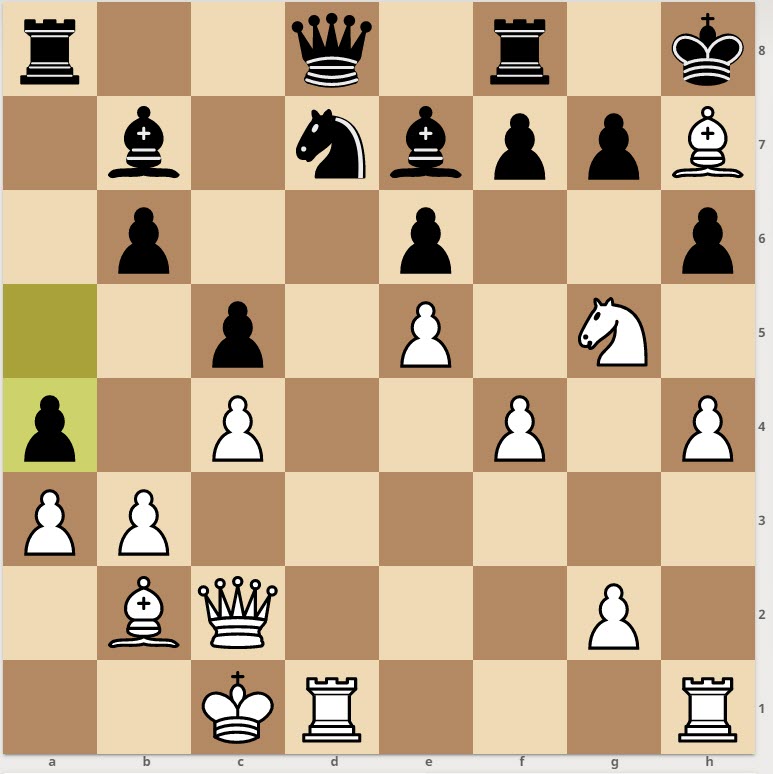I always knew that chess is not a purely intellectual game, even though it looks like that: patterns, positions, variants, technical skills, etc. But there’s much more to that. There is a big emotional part that very often tends to be overlooked. If you have ever played online you know what I’m talking about. When you’re doing well you want to keep playing, you want to keep your winning streak, and increase your ranking. If you lose a game you want to “take revenge” and play another one. And then another one, until you break the losing streak. Sometimes I fall into that, but I do it carefully: as a rule of thumb, I never play two games in a row against the same player 😁. This helps me not to take things personally and to keep some emotional distance.
I have a couple relevant quotes on emotions and chess from ‘The Seven Deadly Chess Sins’ (bolds are mine):
The quality of [our thoughts and emotions], and their appropriateness, determines your chess strength on any given day.
The ‘shape’ you give to the chess position is an external manifestation
of what is going on inside you.
To make the most of this book, it will be helpful for you to take a while to consider whether you are inclined to ‘think’ or ‘feel’ your way to solutions in daily life. Do you take responsibility for your actions? In what ways are you self-deceptive? Do you generally get upset about details or obsessive about getting things right?
[…] feelings are typically indispensable for rational decisions. These feelings
point us in the proper direction, where dry logic can then take over. So the bottom line is that the emotional brain is every bit as involved in reasoning
as the thinking brain.
The Lesson: French Defense (Guimard Variant) & Game Analysis
We studied a lesser-known variant of the French Defense, known as the “Guimard Variant” and we reviewed a couple of Andrea’s games illustrating the topics and structures we’re learning. We’ve been studying the French Defense for a while now. It turns out that it’s Andreas’ specialty vs e4 games, and it’s also a personal favorite of mine. I hadn’t played the Guimard so far, so I was excited to learn something new in the French Defense territory.

At first sight 3… Nc6 might seem odd and counter-intuitive. Why would Black place a knight in front of the c7 pawn, making it harder for himself to play c5 (a classic rupture pawn movement in the French)? It doesn’t make any sense, right? As Andrea told me, there’s a psychological element in choosing less-played openings. There’s a surprise factor not to underestimate.
The Weekly Practice (02/17/21 to 02/23/21)
This week I practiced two Puzzle Storms each day, tactics on “silent moves” and simplifications, continued studying Dvoretsky’s Endgame Manual and continued reading “The Seven Deadly Chess Sins”, by Jonathan Rowson (oh, I love that book!).
For half of the days I practiced around 8pm, and I also tried very early in the morning and at noon. This week I also studied for around 1 hour each day (the only day I don’t do active study is when I take the weekly lesson with Andrea).
Analyzing my Own Games
Andrea wisely suggested me to start analyzing some of my games. He told me it would be a good idea to decide in advance whether I was going to review a game (not to change my mind in case I didn’t feel like analyzing it or if I was pissed off after losing 😄). The other suggestion was to do it on my own: write my own variants, add comments, etc. And not using the computer engine for help! I think this is been very helpful to develop more self-reflection and rely more and my own judgement. After all, in a game situation you need to do that yourself, on the spot. And you need to do it all the time, second after second!
The Games of the Week
Between February 17th and February 23rd, I played 35 blitz games. During this week my ranking was below 2200. These are the picks:
C05 French Defense: Tarrasch Variation, Closed Variation (I won with White)
Here I got a great position with opposite side castling. Usually, these are fierce battles. All or nothing.

C70 Ruy Lopez: Morphy Defense, Caro Variation (I lost with White)
C11 French Defense: Steinitz Variation, Boleslavsky Variation (I lost with Black)
That’s all for now! 😊
